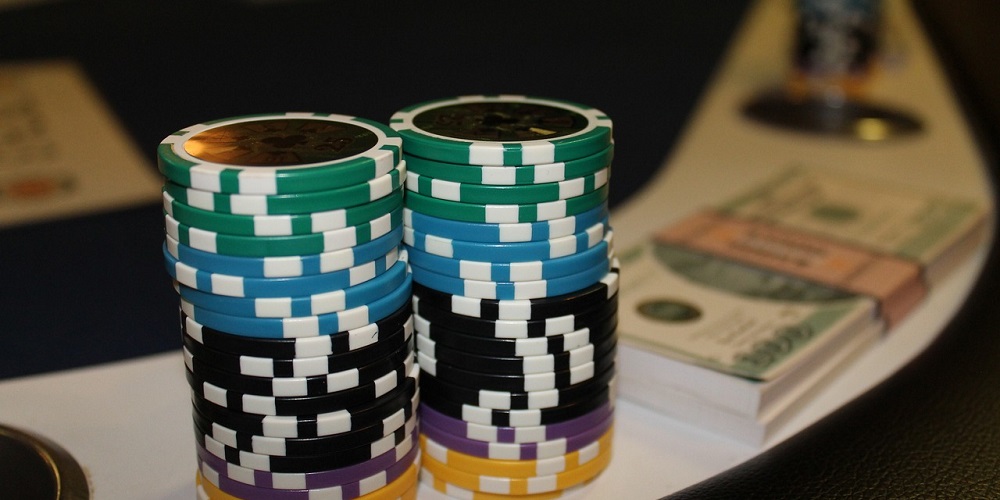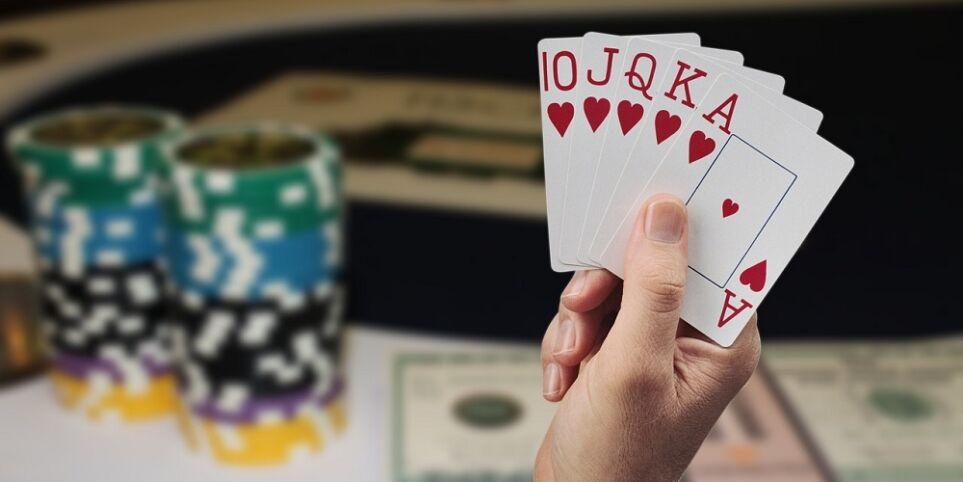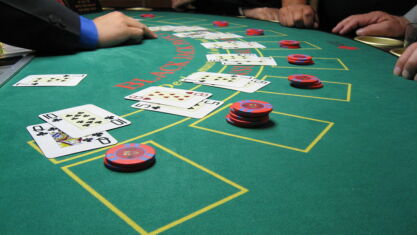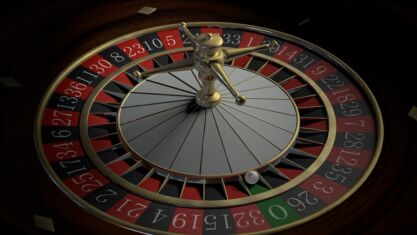Poker is a game of strategy, skill, and a bit of luck. It is played at a table with a special layout that accommodates from two to nine players. Everyone who plans to play the game for real money at a casino table should learn about its layout, positions, and etiquette. Here you have the most important facts about poker tables explained.
Poker tables explained: layout
Let’s first understand the layout of a poker table. Understanding the layout of the table is important because it allows you to evaluate your position in comparison to other players and develop the best strategies. The seat you occupy can greatly impact your ability to make strategic decisions and ultimately win the game.
A standard table in most land-based casinos has nine seats, but some may have fewer places. Each seat is numbered, starting with the seat to the left of the dealer and continuing clockwise around the table.
In addition to the numbered seats, there are two other important spots at the table: the small blind and the big blind. The small blind is the seat to the left of the dealer, and the big blind is the seat to the left of the small blind. These spots are important because they require the players in them to make mandatory bets before the hand begins.
Poker bets
What about betting at a poker table? There are three types of bets you can make during the game: the ante, the blind, and the raise. Follow our latest online poker updates to learn more useful tips about poker.
- Ante is a bet that all players must make before the round begins. It is typically a small percentage of the minimum bet and is used to create a pot for players to compete for.
- Blind is a mandatory bet made by the players in the small blind and big blind positions. The player to the left of the dealer places the small blind, which is typically half of the minimum bet for the game. The player to the left of the small blind places the big blind, which is equal to the minimum bet. The blinds are important because they create a pot for players to compete for, and they also determine the order of play for each hand.
- Raise is a bet made by a player who wants to increase the amount of money in the pot. The player who makes the last bet or raise is the one who will show their hand first, or if there is no bet on the final round of betting, the player closest to the left of the dealer will show their hand first.

Positions at a poker table
To have everything about poker tables explained, it’s important to cover positions players occupy at a table. Typically, there are six positions called early, middle, late, small & big blinds. However, their number may vary depending on the number of players.
Early positions are considered the worst, because players make moves without having any information about opponents’ hands. When playing from an early position, it’s important to play carefully and conservative, stick to strong hands and avoid weak ones. The reason for this is that the players in the later positions have more information about your hand, and if you play too many weak hands, you’ll be giving away too much information.
Middle positions are better than early ones. Here, players can start to play a bit more loosely than from the early positions. You still want to be cautious, but you can start to play some weaker hands if the conditions are right.
Late positions are the best in poker. When playing from such a position, you have the most information about the other players’ hands, and as a result, you can play more aggressively. This means playing more hands and making more bets and raises.
Small blind and big blind are quite bad seats for poker players. When playing from any “blind” seat, you’re in a tough situation because you’re forced to make a bet before the start of each hand. As a result, you should only play strong hands from this position.
How to Behave at a Poker Table
Now you have almost everything about poker tables explained. Finally, let’s take a look at how to behave at a poker table. These simple yet useful tips can come in handy when you play poker in land-based casinos.
- Respect the dealer and other players. It’s important to respect everyone at the table and treat them with courtesy and respect. Don’t insult or belittle them, and don’t gloat when you win a hand. Also, try not to smoke at the table because some players can be allergic to it.
- Behave during wins and losses. Don’t be aggressive if you lose and don’t dance at the table if you win. Be mindful of your behavior at the table, don’t distract other players or touch their cards/chips.
- Don’t cheat. Cheating is not only unethical, but it’s also illegal and can result in serious consequences. Play the game honestly and with integrity if you want to have the best experience at a poker table.
















